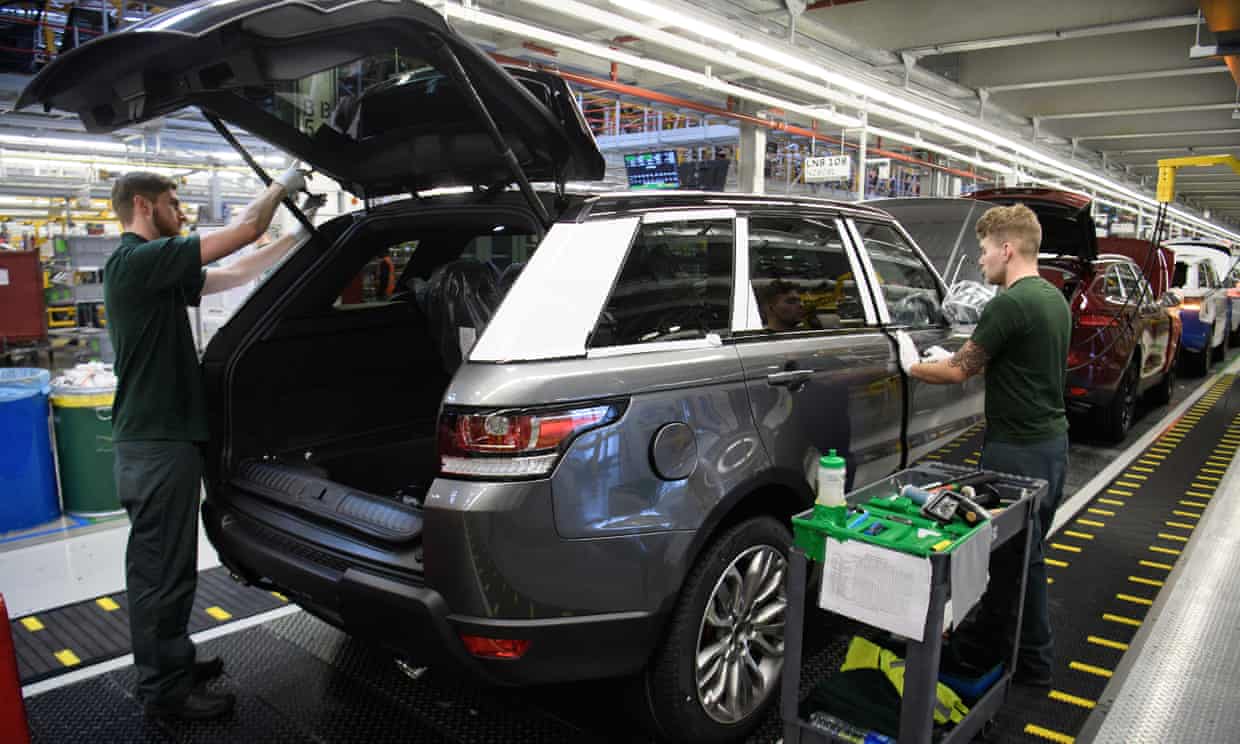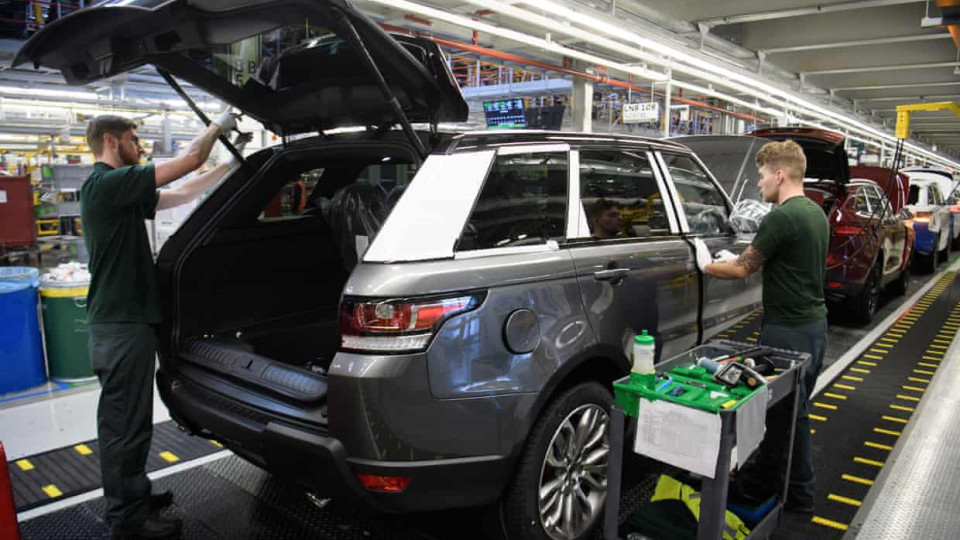
The British economy slowed in the three months to November as car manufacturing went into reverse amid the broadest drop in industrial production since 2012.
In a sign of mounting weakness in the economy, with fewer than 80 days to go before Brexit, the Office for National Statistics said that GDP growth cooled to 0.3%, down from a rate of 0.4% in the three months to October.
Disruption to factory output from new vehicle emissions tests, as well as stalling demand at home and abroad, contributed to the manufacturing downturn and reflects the widespread problems facing the global car industry.
The latest snapshot comes after Jaguar Land Rover and Ford announced thousands of job cuts, including at least 2,000 in the UK, while figures from China revealed the first drop in car sales for almost 30 years.
What is gross domestic product (GDP)?
Britain’s industrial sector, which draws together electricity and gas production, water supply, plus mining and quarrying alongside the manufacturing sector, recorded declines across all four industries for the first time since 2012, acting as a handbrake on the wider UK economy.
Manufacturing output – which accounts for about a tenth of the economy – declined for the fifth consecutive month, in a first since the 2008 financial crisis.
Despite the weaker levels of industrial production, consumers helped to prop up the economy in November, with the ONS reporting that Black Fridaypromotions helped lift retail sales as one of the main drivers for economic growth.
The services sector – which accounts for about four-fifths of the British economy and includes shops, hotels and restaurants – gave the biggest boost to GDP growth during the period, while construction also proved positive.
On a monthly basis, GDP increased by 0.2% in November from 0.1% in October. The annual rate of growth slowed to 1.4% from 1.6% in October.
The slower pace of economic growth comes as the world economy enters a soft patch amid US-China trade tensions, while industrial output fell in several other nations because of the new vehicle emissions tests introduced after the VW emissions scandal.
Economists are forecasting that Germany and Italy could enter recession in the final quarter of 2018, while UK growth is also forecast to slow following a strong summer period.
However, the timing will prove problematic for Britain preparing for Brexit, with the risk of supply-chain disruption facing factories and exporters lacking clarity over the future EU trading relationship.
Mike Spicer, the director of research and economics at the British Chambers of Commerce lobby group, said: “These are testing times for many exporters who are feeling the pressure of Brexit uncertainty and broader global issues in the trading environment.
“As the clock ticks ever closer to March, businesses are becoming increasingly frustrated and looking to Westminster for clarity and precision on the future terms of trade. Firms need to know what customs procedures they will face with their nearest neighbour and other important partners in just over 10 weeks.”
Amid the cooling global economy, the sharp fall in the value of the pound since the EU referendum should have acted to make British exports more attractive. However, the UK’s trade in goods deficit – the gap between imports and exports – unexpectedly widened to £12bn in November from £11.9bn in October.
Samuel Tombs, the chief UK economist at the consultancy Pantheon Macroeconomics, said that, although world trade had slowed, Britain was still underperforming.
“The fall in exports also suggests that overseas firms have become reluctant to source goods from UK firms due to concerns about the disruption that might result from Brexit,” he said.









Leave a comment